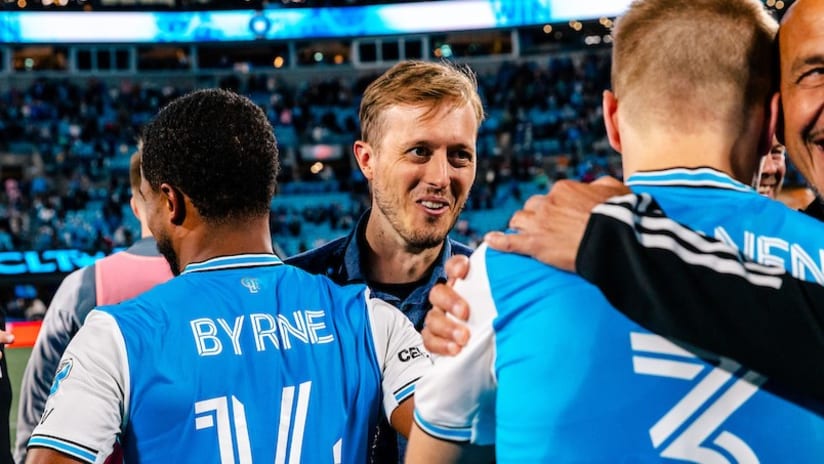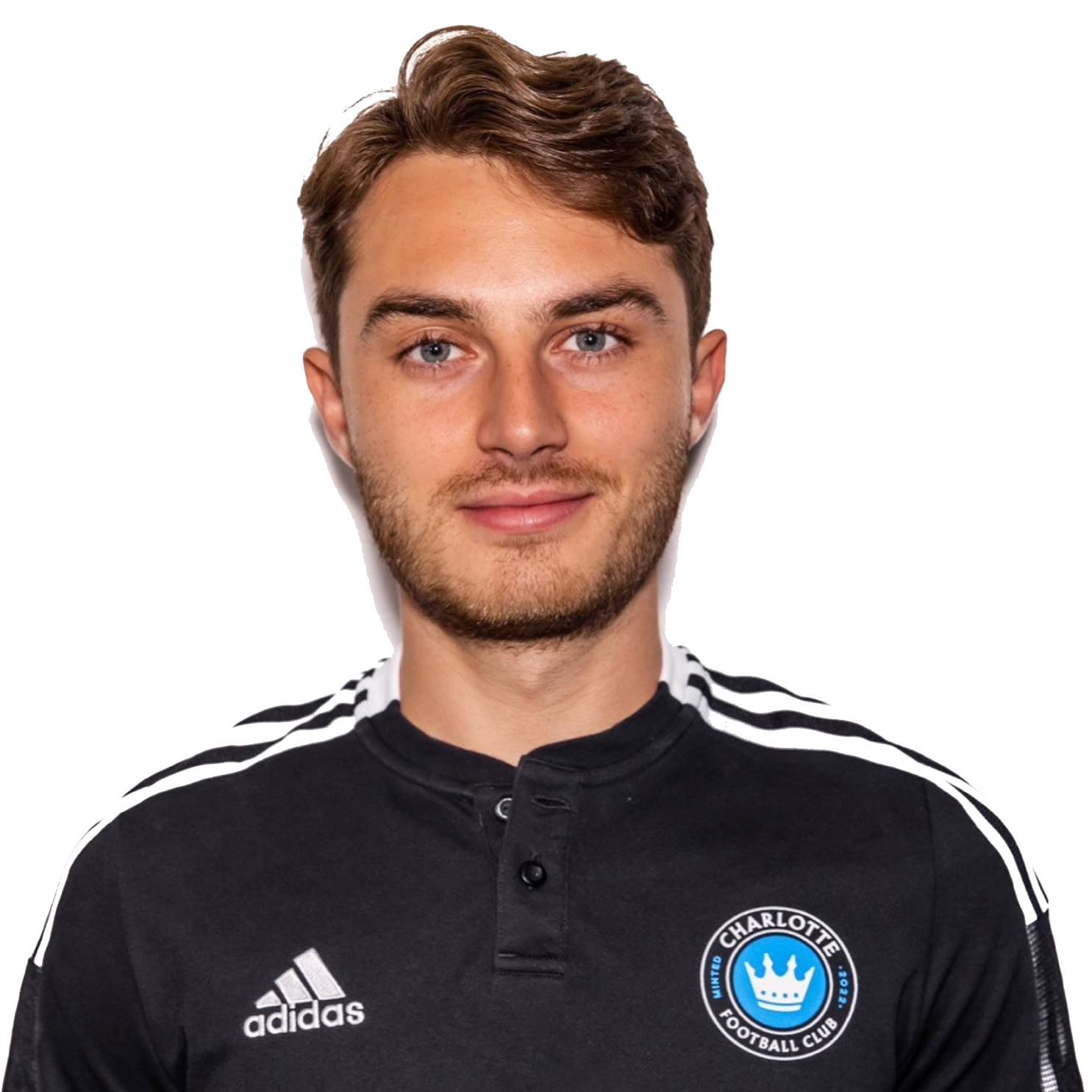For many in this country, the holiday season is a time for relaxation and time with family before jumping into the challenges of the new year. However, for Charlotte FC's Director of Scouting Thomas Schaling, December is one of the most critical months of his year.
Schaling heads CLTFC's eight-person (and growing!) scouting team, working hand-in-hand with Sporting Director Zoran Krneta and Technical Director Bobby Belair, among others in the sporting department, to identify, recruit, and sign the next stars taking the pitch at Bank of America Stadium.
With a new head coach in Dean Smith now in place and a critical offseason on the horizon, Schaling and his team have been hard at work prepping for 2024. He was gracious enough to take time out of his busy schedule to sit down for a chat with me this week.
The result is a fascinating peek behind the curtain, giving us an inside look at specific players that arrived last year, the lessons learned from the team's first two years, and his vision for where CLTFC is headed in year three and beyond.
Responses were lightly edited for brevity and clarity.
Caleb: There were a lot of departures heading into year two of Charlotte FC, so the scouting department had a lot of work to fill the gaps in the team. Including draft picks, the first team saw 12 news faces join the side. Overall, how do you assess the team’s recruitment in their second season?
Thomas: We solidified the team between the primary and secondary transfer windows with more MLS experienced players like Bill [Tuiloma] and Justin [Meram]. We tried to add more depth to our domestic core with the college players as well, which was important to us. We made our supplemental roster stronger with players like [Patrick] Agyemang, [Andrew] Privett, [Brandon] Cambridge and [Hamady] Diop. Then we looked to add quality and experience with the international signings we made in [Ashley] Westwood, [Enzo] Copetti, [Scott] Arfield, [Brecht] Dejaegere and [Jere] Uronen. Overall, I think we managed to stabilize and improve the team.
That being said, the jump in our points total from 2022 to 2023 wasn't big. We felt the improvement in quality was there to make a bigger jump, but there are many factors at play when trying to get to over 50 points in MLS regular season play. Overall, the roster improvement wasn't fully reflected consistently over the course of the season. With further improvements to the roster, our desire is to make that next big jump under Dean [Smith] in 2024.
Caleb: What lessons from the inaugural season did you take heading into the club’s second season?
Thomas: The recruitment strategy was different in our second year, as we weren’t building from scratch this time around, so it was easier to target the positions of need and focus primarily on those. The whole picture and where the resources would be allocated was much clearer as well. It was a case of: this is the allocation money we have, these are the roster designations that we have left, and these are the positions we want to strengthen.
We knew pretty clearly what type of budget we had to work with for each of the positions. But of course, there were lessons taken away from the first year by the entire organization. I believe it taught us all to be even more process-driven, more collaborative, and trust more in our knowledge of the league.
Caleb: Ashley Westwood was one of the first of the new additions. Naturally, there were questions surrounding his age and the injury he had just recovered from. He ended up being a locked-in starter and a leader both on and off the pitch, earning him the team captaincy.
What do you make of his first season at CLTFC and MLS?
Thomas: I think that Ashley really started to hit his stride around June and July and has had numerous very good performances throughout the season. It is only normal for a player coming off a severe injury and into a new league to need some adaptation time. Premier League players are no exception to that. Obviously, the leadership and stability that he adds to this group has been very helpful as we've had a turbulent first two years in the league due to various reasons.
Ashley has established himself in Charlotte in a similar manner to how he has established himself at his previous clubs: as a positive personality and someone that leads well by example. It’s no surprise to us that he has turned into a fan favorite.
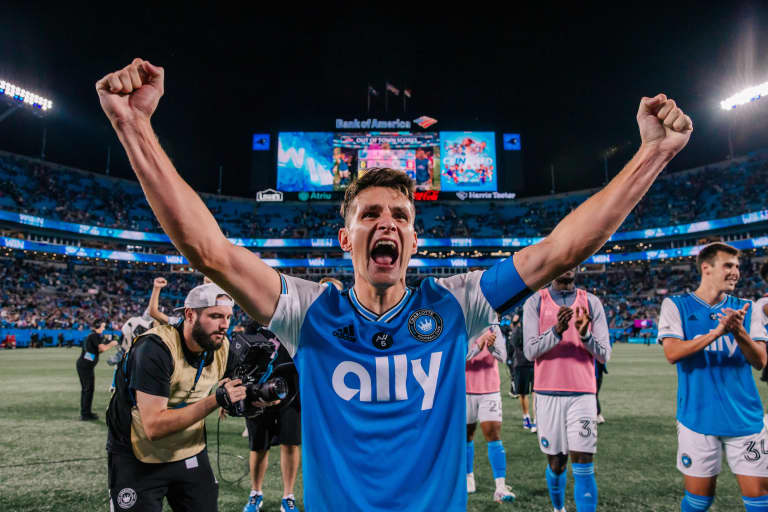
Caleb: The Club made it clear that left back was a big area of need, so you all went out and acquired Jere Uronen who played a key role at the end season (including pocketing Messi in the last match of the regular season - I had to throw it in there!).
How does the Club feel about that position now?
Thomas: Acquiring Jere wasn't a last-minute decision, but it did come down to the wire in the transfer window. Sometimes the players that you are targeting are likely to be available, then temporarily unavailable, and then suddenly available again. This is the reality of the transfer window and the months leading up to it. Jere was able to play eight games for us, and I think he was really steady when he played. He performed well overall, defended strongly, showed his ability with his left foot, and adapted quickly to the league and into a playing style that was demanding for fullbacks.
He improved the team on an individual level as he was an upgrade in his position, but he also improved the collective, which is even more important. He came into what was clearly a position of need for us, and I think he improved and stabilized us a lot when he played. We feel like we've covered that position for years to come with Jere.
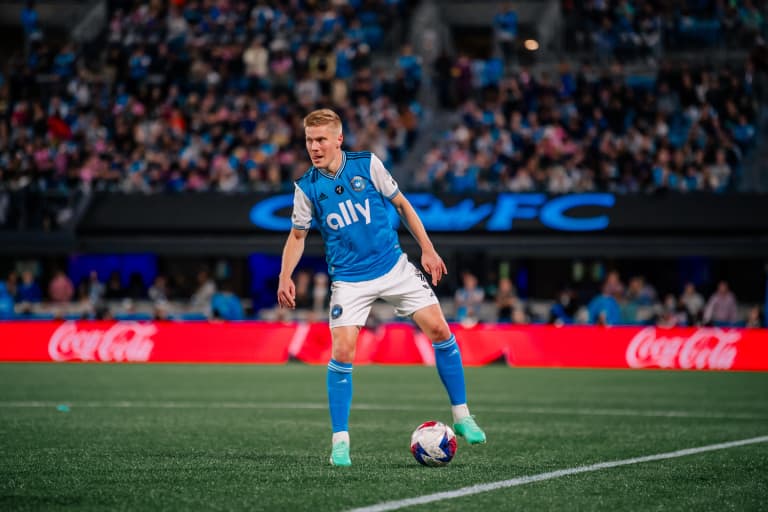
Caleb: It seems the scouting team has placed an emphasis on the SuperDraft that isn't too common within the league. Last year, CLTFC traded up twice to get players they wanted in the first round and have found success with late round picks as well. What’s the process for scouting college players and why has the Club valued the SuperDraft so highly?
Thomas: Our process and strategy is about putting a lot of time and resources into college scouting before the Combine. We take it very seriously by doing a lot of college scouting during the regular season to make sure we're well prepared and know all of the players before we get to the Combine, so that we can focus mostly on interviewing and getting to know the personalities of the players at the Combine. We prepare the coaching staff, making sure to collaborate with them during the lead-up so that we can make the right calls during the draft itself.
A lot of the responsibility of preparing the team before the draft lies with Ben Green, our International & Emerging Talent Scout. He has done a great job over the past two seasons, playing an important role in the success of last year’s draft and college recruitment. We are also pleased with this year’s draft, moving up to get our top target and getting good value with talented players for our later picks.
As a new club that still had to develop our academy and its players in 2020, we always felt that the college draft would be an especially important part of building out the domestic core of the roster. Our success in the draft so far and the success of some of the other teams from our league shows that it is a specific market and a player pathway that you have to take seriously as an MLS club.
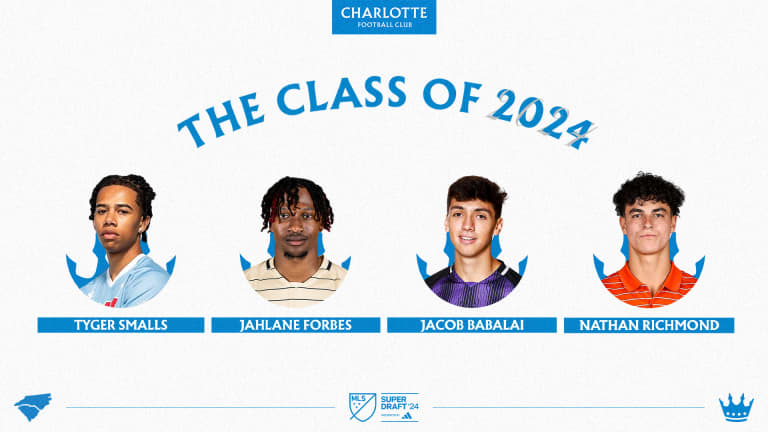
Caleb: MLS is notorious for having a steep adaptation curve where we normally see the best of players in their sophomore season. Do you think that’s the case?
Thomas: I think that's definitely true. This is where there is an advantage to adding players with MLS experience to the roster. Even though we had already recognized the need for prime domestic players at the start of this journey, I think that looking back, we would have pushed even harder to acquire those players in year one. We certainly tried to get numerous high-end domestic players from the league, but it didn’t work out for various reasons and it’s important to be self-reflective and self-critical and assess the job that we've done and what areas we’ve missed in.
I do think we have done well to find undervalued domestic players around the league that have helped with our roster quality and depth and have played important roles for us. Players like Brandt Bronico, Jaylin Lindsey, Derrick Jones, Harrison Afful, Justin Meram and Daniel Ríos have played good roles for us, especially given their budget hits. But, I believe the types of players I was talking about before could have had a great impact on everyone on the roster and helped with the adaptation of international players specifically.
Coming to a new country, settling into a new environment with your family or being without your family and settling by yourself, learning a new language. These are all aspects that make it difficult and they take a lot out of a human being. That’s not even talking about the adaptation the player has to make to a new league, with its own unique style. That takes a toll on players as well as the difference in travel, climate difference, and changes in altitude. All of that is on top of a pretty grueling schedule compared to a lot of leagues around the world.
You think about Enzo Copetti, for example, who played the vast majority of his games in Buenos Aires where he lived [because many Argentinian teams are based there]. He occasionally needed to travel further to Santa Fe, Córdoba or Rosario a couple of times a year, but that's really it. Other than that, all of his games were in Buenos Aires, so it's really different for guys like that. It’s just one of many examples, but it symbolizes the adaptation issues with the MLS schedule quite well.
Caleb: Let’s dive a bit into the process of identifying players to bring in. We know scouting involves everyone on the technical side, but it's the scouts themselves who are in the weeds every week. How big is your scouting team, and can you give us insight into your team's methodology?
Thomas: As of right now we have five scouts in our recruitment department: Ben Green, Davor Brasanac, Lisandro Isei (pictured with Schaling below), Ryan Johnson and Vincent van Raam. It’s important to note the role of analytics in our process as well. Lisandro Isei leads the charge within our recruitment team in that aspect and he has Daniel Wicker and Charles Williams assisting him. We are looking to add another scout in the near future, and we are also expanding the recruitment team with more data scouts.
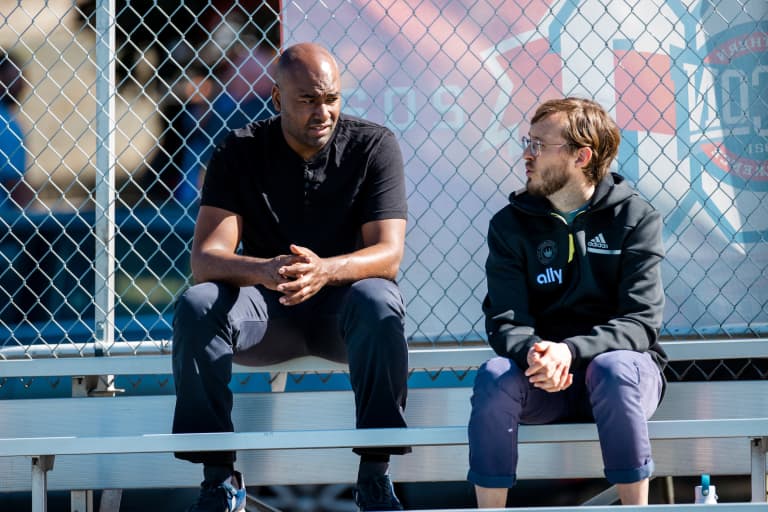
As for the process, a big part of the job is to constantly filter players, making sure we prevent the wrong ones from making it to our Club and target the right ones to eventually go out and recruit them. The way we filter starts with data, then video scouting, and then live scouting. This is a very thorough and consistent process on a week-to-week basis.
Once we’ve narrowed it down to our main targets, me and/or other members of the sporting department will go and watch the player live and meet with him in person. An interview with the player, as well as gathering market intel on the ground, is an important aspect of our recruitment process. In my opinion, in the final phase it’s not necessarily about assessing the technical or tactical side of the player anymore, but really more about assessing the human side.
The human behind the player is absolutely crucial.
With Enzo for example, we had a three-hour lunch with him and his agent, speaking with him about a variety of soccer-related and personal topics and understanding more about who he is as a human being and what drives him. That's really important to us beyond the aspects of going to see a player live. We try to do that with all of our main targets, to work in the exact same way and to weigh the information in a similar manner every time we go out to sign a player.
Caleb: How did the team approach recruitment in the midst of a head coach search before the arrival of Dean?
Thomas: We had identified some really clear targets on the player market with the goal of strengthening every line – defense, midfield and attack. We felt that any coach walking into our Club would want to strengthen those positions as well. Then, there were maybe position four and five that came after those main positional needs. Those would be more up for discussion once the head coach actually joined.
What we were up against was keeping all of the main targets warm until we actually hired our new head coach, which was a challenge. We didn’t think that the main positions would change much. We were pretty confident that the positions of need were going to stay the same. The profiles, however, might differ a little bit from our previous head coach. And that’s where it became crucial to hire a head coach within a certain timeline, so that we would be able to continue the work and get to the finish line with our proposed targets in time
Having Dean walk through that door and collaborate with him on a daily basis has meant we can take the next steps.
Caleb: What sort of things was the Club looking for in the next coach that will be key to getting the most out of the squad he inherits?
Thomas: We were looking for experience, man management and an alignment of vision with the sporting department. The alignment was important in regard to playing style, recruitment philosophy and general vision for the club. We wanted a playing style that is attractive to fans but has also proven to be a winning concept in MLS. A coach that wants to work with players from all across the globe, wants to work with and develop young players, that's really important to us as well. And then a proven leader, someone who's really good at managing the players, and who has a good reputation and good experience in that regard.
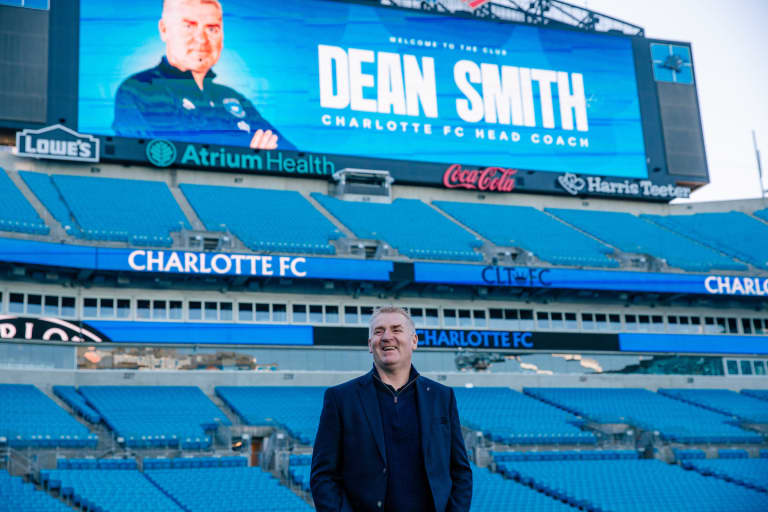
Caleb: How does the team balance the player wants of a coach and sporting department?
Thomas: I think the biggest challenge between sporting department and coaching staff is always in the area of vision and alignment. You need general alignment about how you want to move forward and develop the Club and the roster. Of course, there are going to be moments where we may disagree. That is part of working together, because we are not in the business of constantly agreeing with each other on everything. That would be unhealthy. I always say that where the coach is most important with regards to recruitment is in giving a clear impression of his needs through player profiles for each position.
And where the scouting department is most important is in identifying the players that best fit those profiles and presenting them to the head coach, who needs to play a role in assessing the final candidates. After that, it’s important that we work together in finding the best solution for the Club in terms of finance, character fit, age category (short-term versus long-term), technical fit, and contract length.
If the head coach sets up five main characteristics that are really important for a certain position, then that is a really strong indication of what that player should look like. Then there are scenarios where we as a sporting department might need to add additional characteristics on top of the head coach’s positional profile, simply because we think that is necessary to succeed in MLS.
You also have the scenario where we can’t find the target that fits the profile on all five of those main characteristics. In the end, recruitment at any level, but especially in MLS, usually isn’t about finding a 10 out of 10. You find a 7 or an 8 who has the potential to grow into something much more. We want to give every head coach the type of profile that he wants, but we also need to collaborate to get the players that are the best overall fit for the league and the best long-term solutions for the club.
Our job is to always be prepared and have a roster that's MLS-proof. Together we need to find the right players that fit into the unified vision of both the head coach and sporting department, as well as players that align with certain characteristics that are necessary to win in MLS. I feel that we’ve done with our year two additions, and we will continue to do better and better.
Caleb: So, now Charlotte FC has its coach and the SuperDraft was a success. What are the immediate next steps within the next month to set up this team for a jump heading into the Club’s third season?
Thomas: We’ve identified three positions as the main ones to strengthen. We think we need help in the positions of center back, attacking midfielder, and winger.
For each of these positions, we have multiple targets that we have been in close contact with over the past months. These are dynamic lists for each position, but we are in a situation where we always have around five players per position that we are actively in talks with, as well as hundreds of players per position that we are monitoring through video and live scouting, and thousands through data.
During the head coach interview process, we already got a clear impression of Dean’s playing style and positional profiles. As soon as the ink on Dean’s contract was dry, we started planning meetings with him to work on explaining the finer details of the positional profiles with the recruitment team. After that we were able to present the video analysis, data analysis and market intel on the main targets that we felt would fit these positional profiles to him.
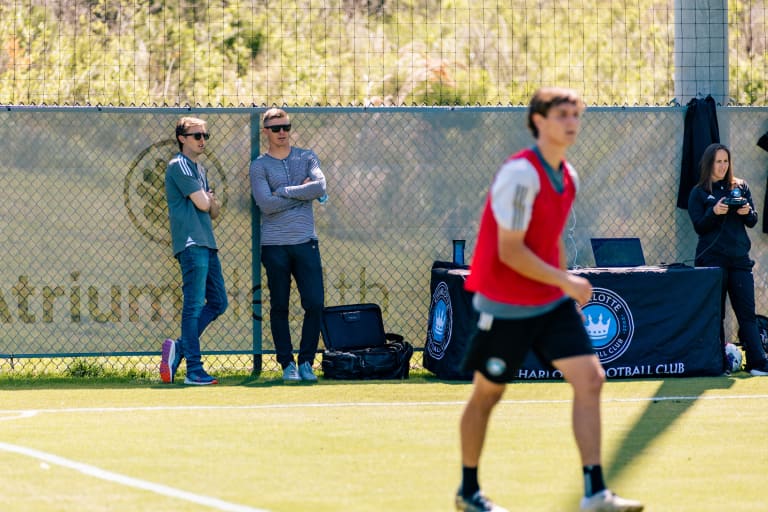
Caleb: Really appreciate the time, Thomas. Let's finish on a lighter note! You’ve been in Charlotte for a few years now, how have you enjoyed your time in the city and the unique opportunity of building the foundation of a brand-new club?
Thomas: When you come into a project like this you have a lot of ideas about what it’s all going to look like. I would say that in many ways it has exceeded my expectations, especially given how massive it's turned out to be for the soccer community in this city and the Carolinas.
I remember when I finally moved to Charlotte with my family in December of 2021. Working on building this Club from a distance was different for all of us, but then when you get to Charlotte to start your own life here, it all becomes very real. You start to build more relationships within the Club and within the community. Walking into our office and seeing all these people work towards the same goal on a day-to-day basis made it all come to life. But I think the impact of it all truly hit me when we played our first ever home game against LA Galaxy at Bank of America stadium. The fact that over 74,000 people came to watch our team - this Club that we built together - was simply amazing.
That being said, we are too ambitious of a Club to feel satisfaction after our first two seasons. Simply making the playoffs isn’t enough for any of us at Charlotte FC. Despite experiencing great moments together, we also faced a lot of challenging moments during our first two years, and learned a lot about where we need to improve. We want to make big strides going into the 2024 season.
I will always be appreciative of the opportunity given to me by Zoran [Krneta] and Mr. and Mrs. Tepper. It's really been a great honor on a professional level so far. My family and I have grown to love this city and the hospitality of the people here, and we will forever be connected to Charlotte, as our second child was born here. After only having lived here for two years, it’s already a place we hold dear to our hearts. I look forward to what the future brings and am very confident that future is a bright one.
The way we work together with so many great people we have here at the Club, from the business side to the recruitment team to the academy to the sporting department, there’s a lot of credit to go around when it comes to how we have built this Club from zero to where it is now.
I think we are going to take a big leap together in 2024.

LET'S PARTY!
It's official. Season Three kicks off on Saturday, February 24 at 7:30PM ET. Get ready for a new beginning for Charlotte FC.

